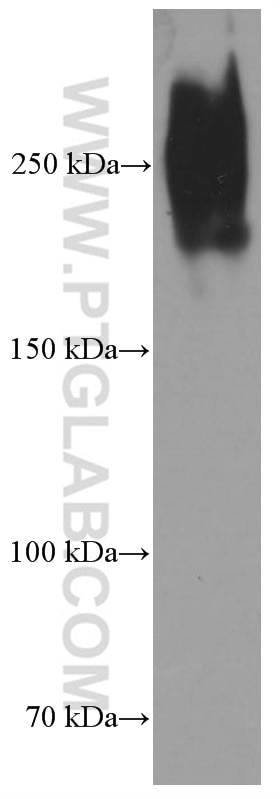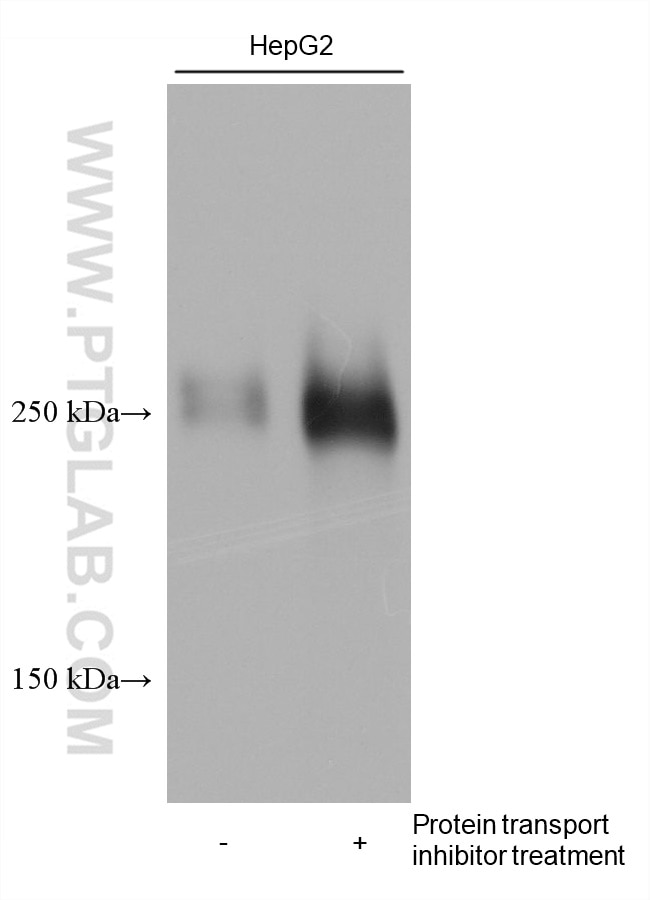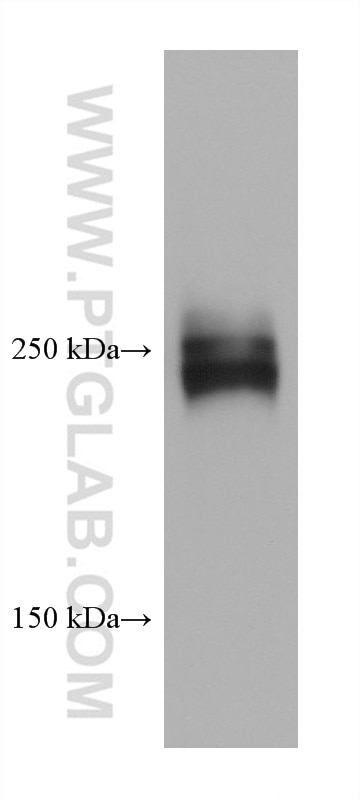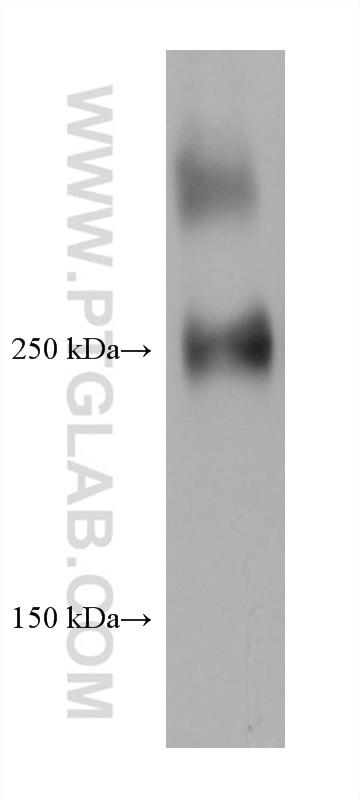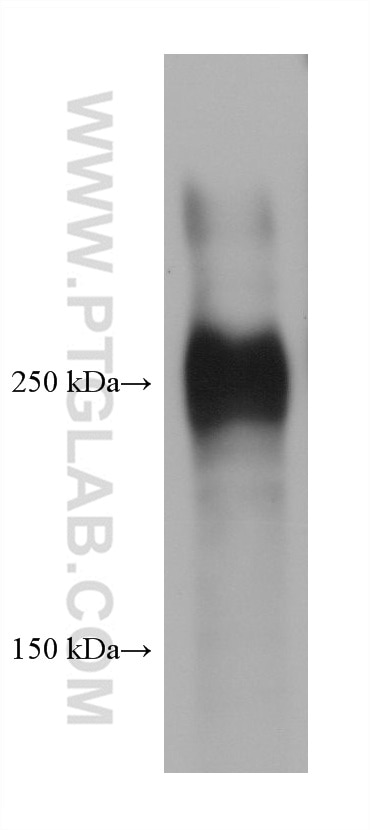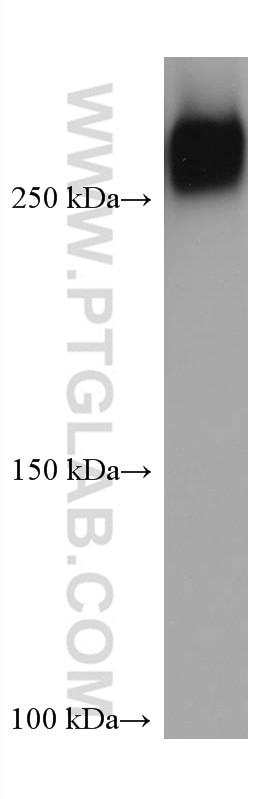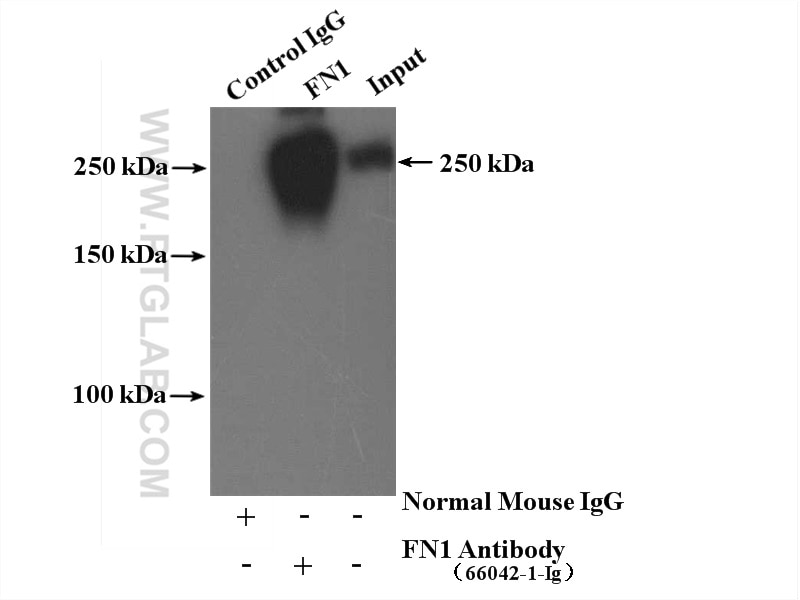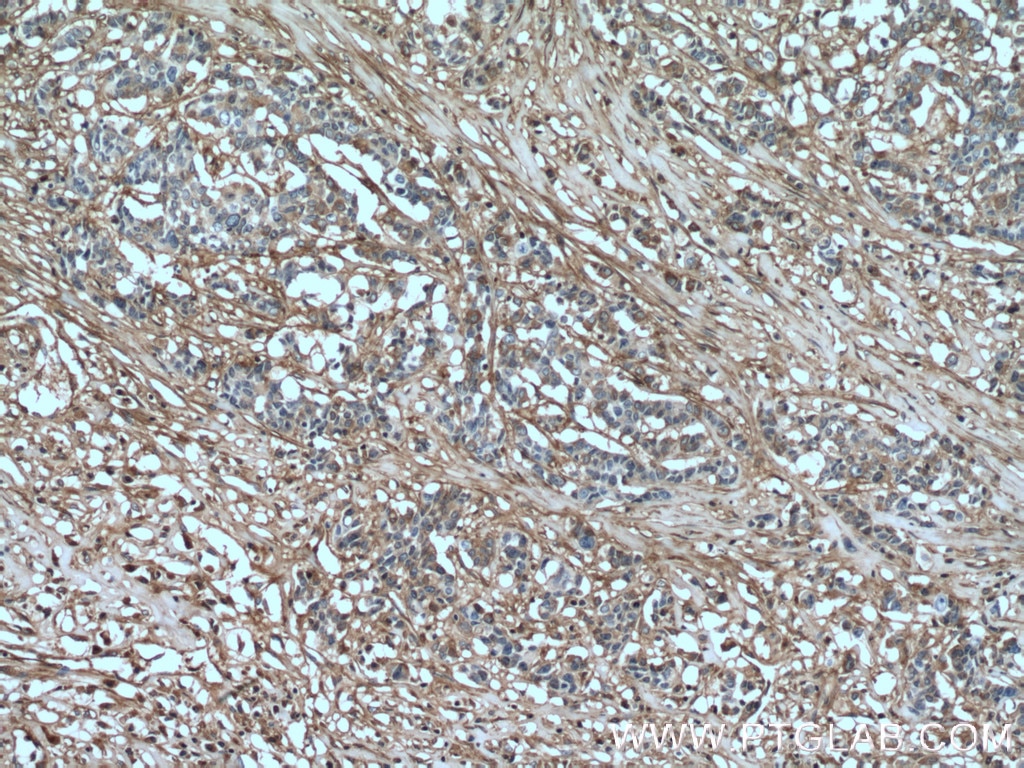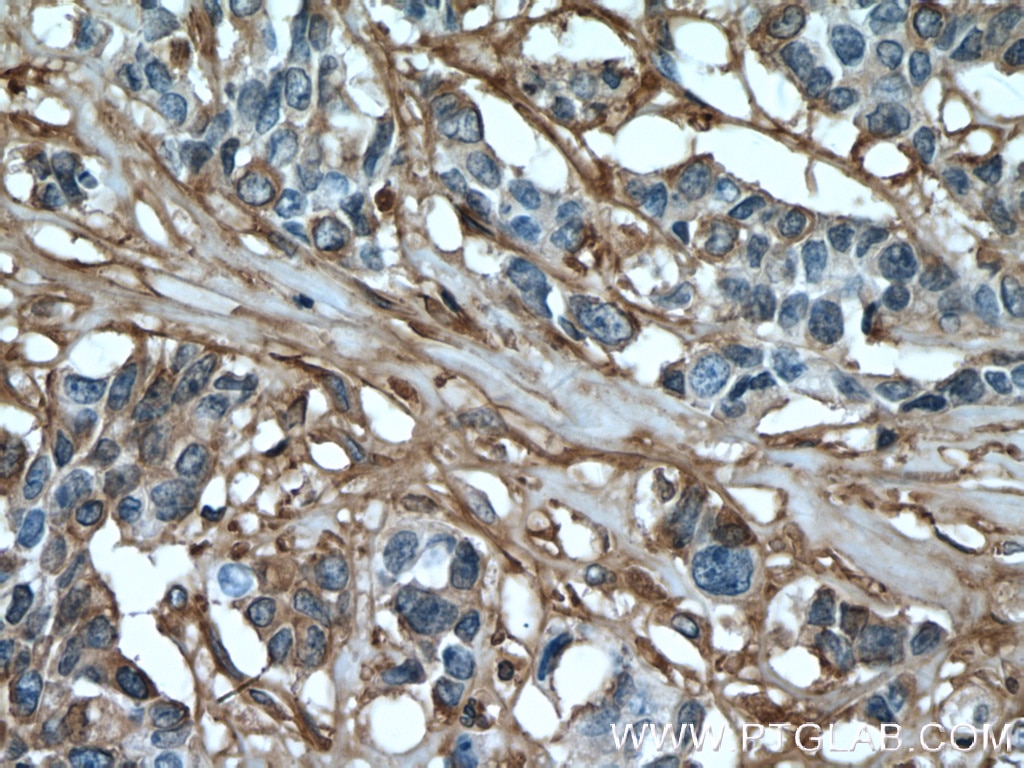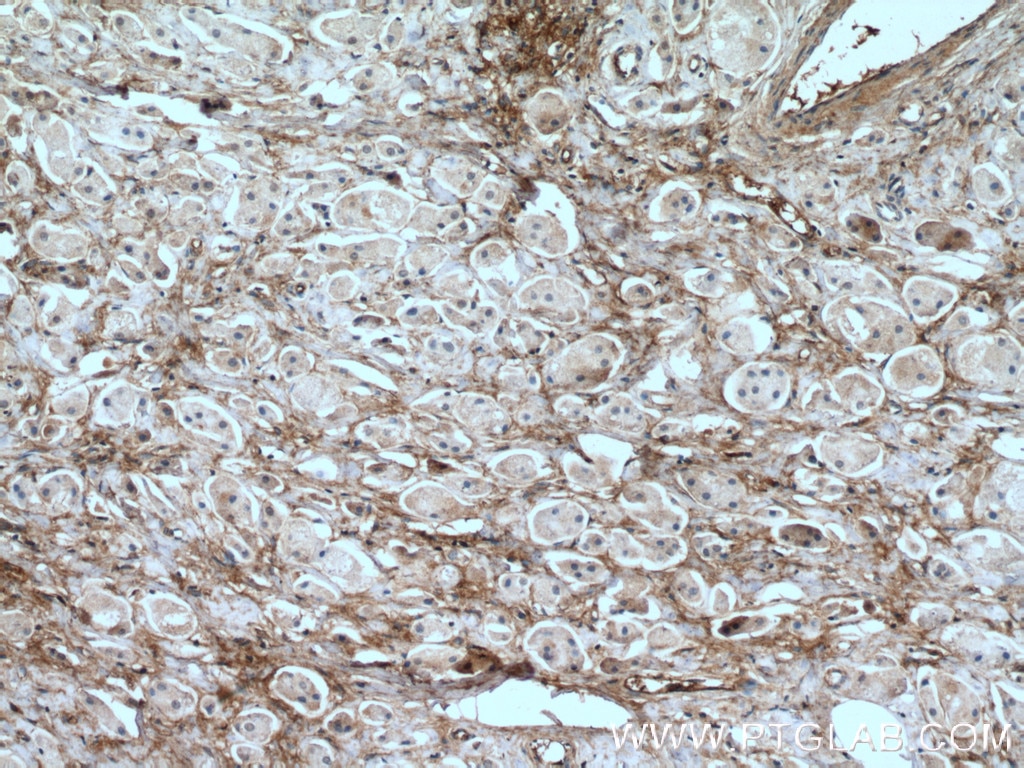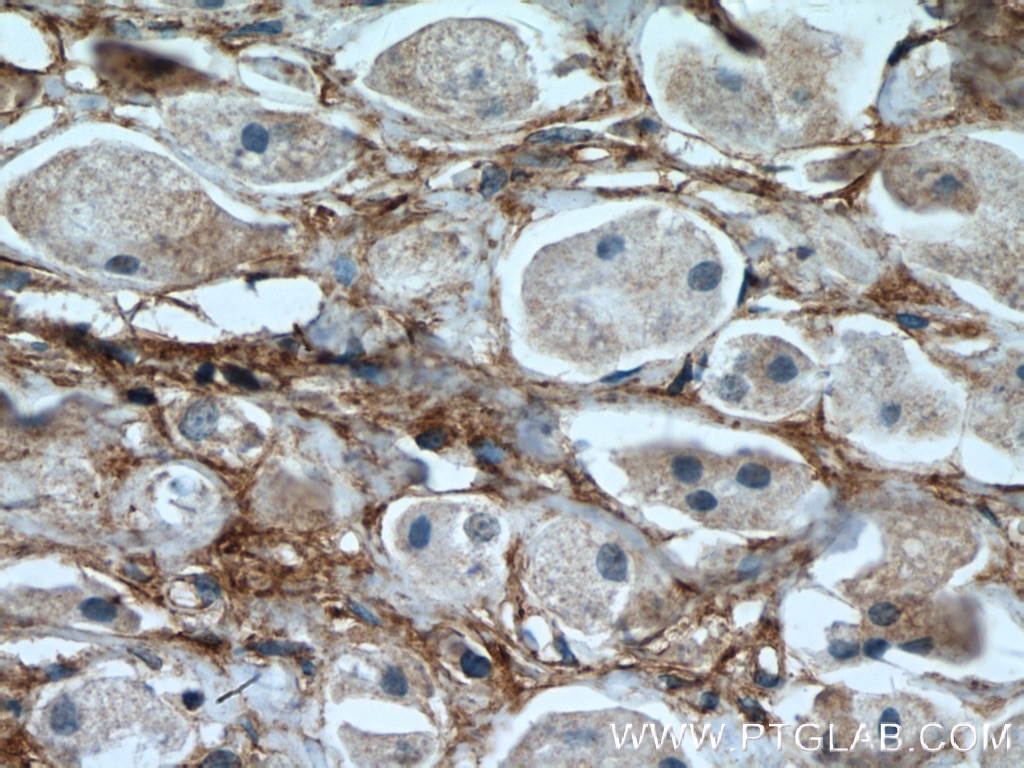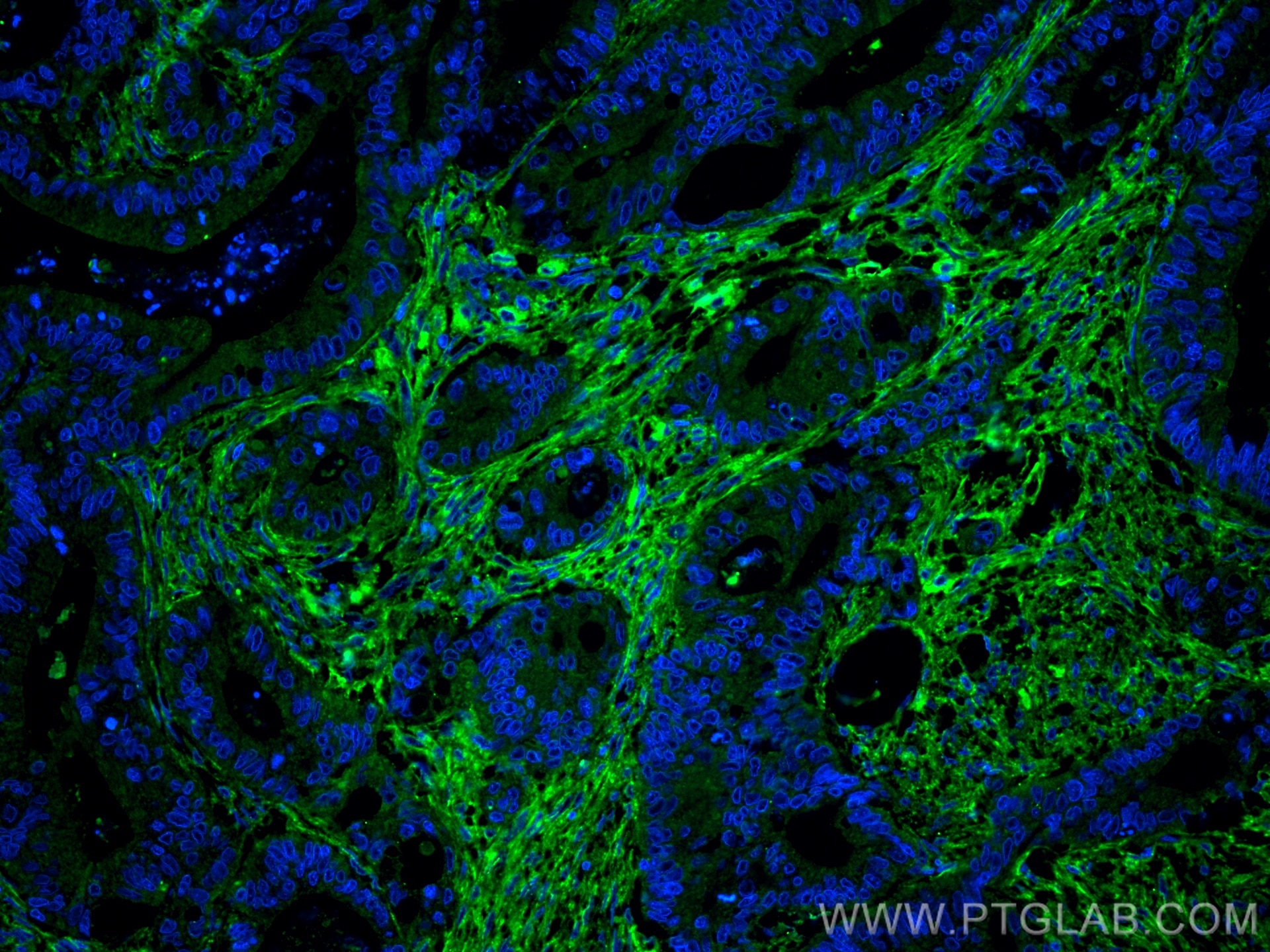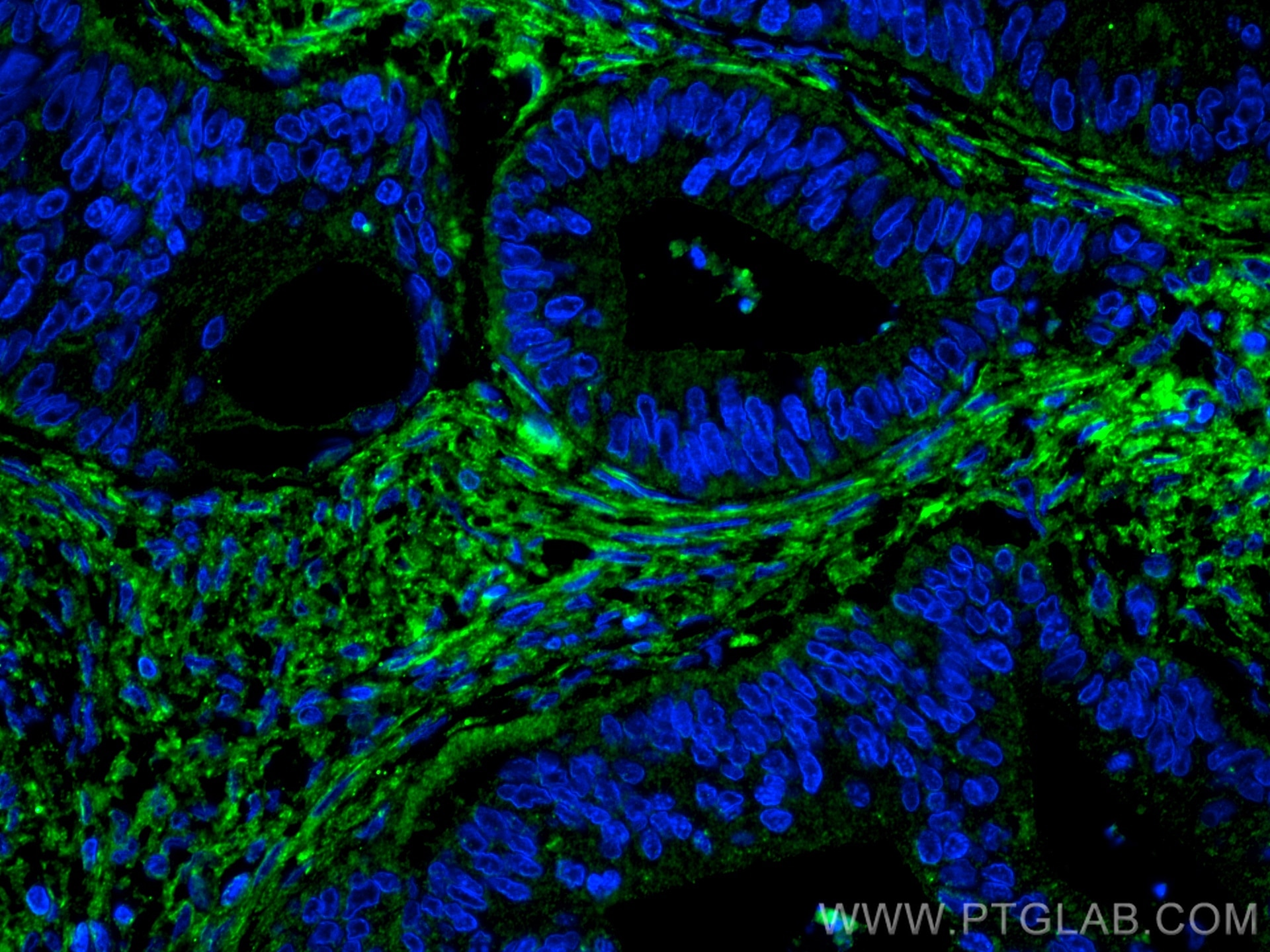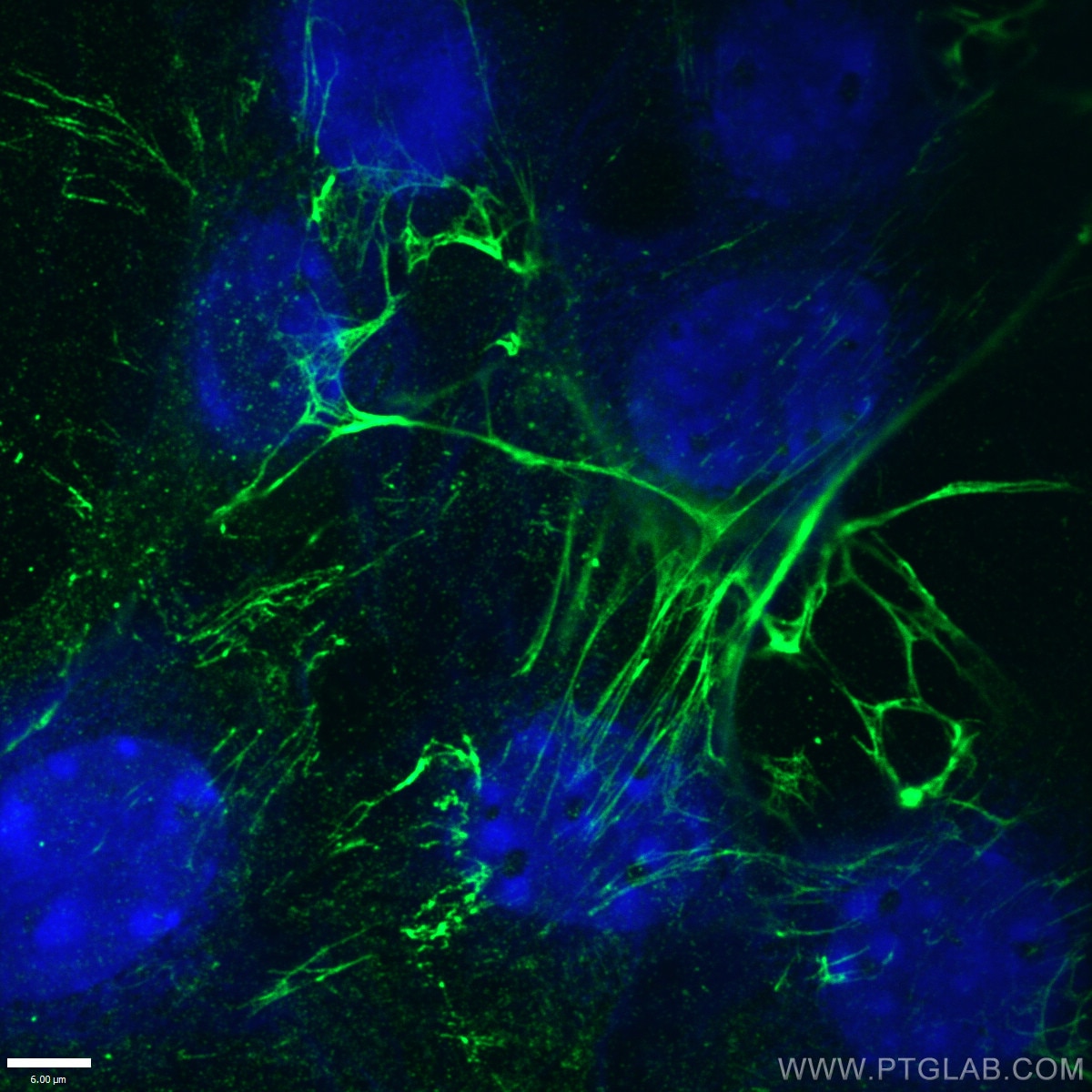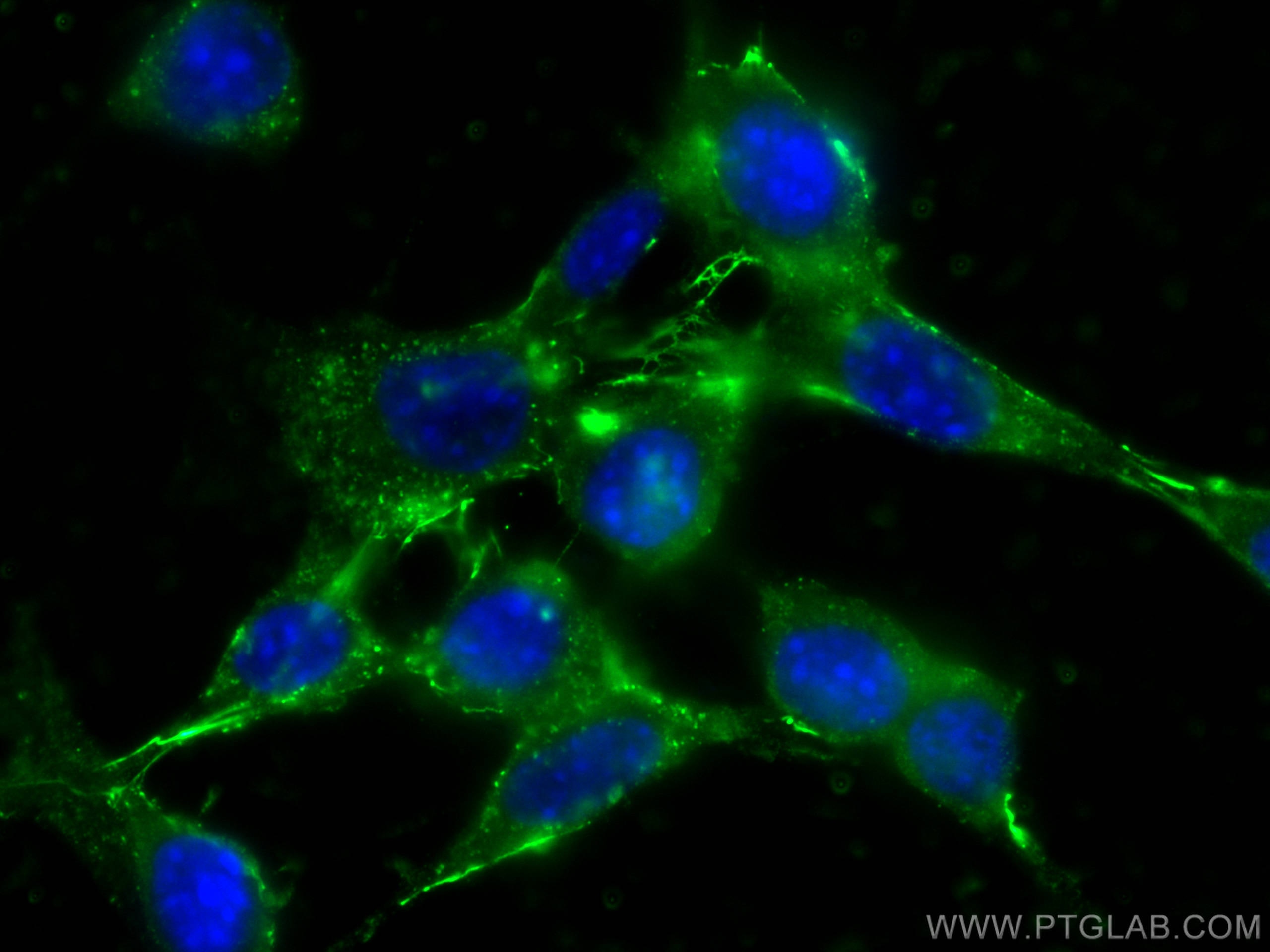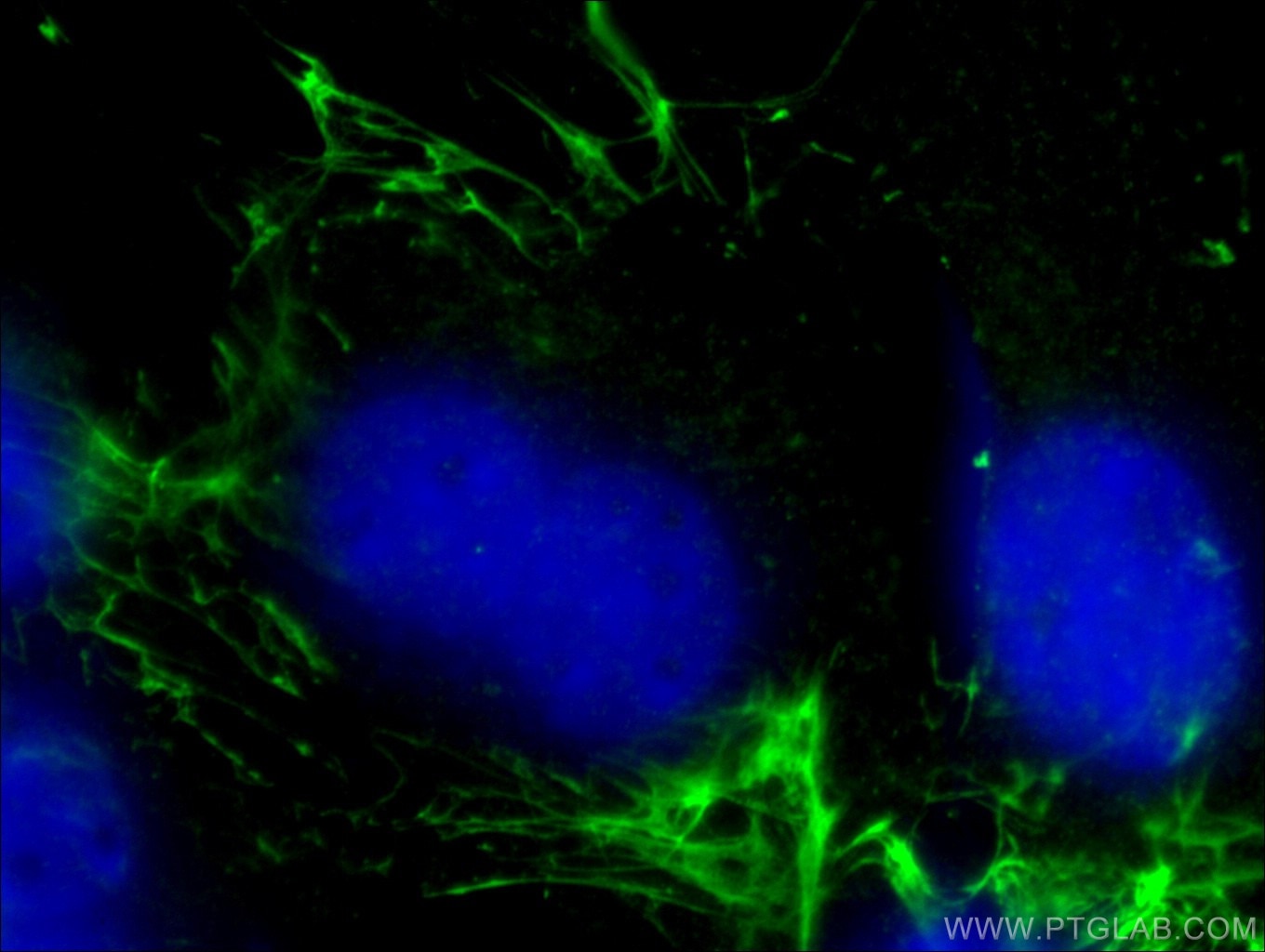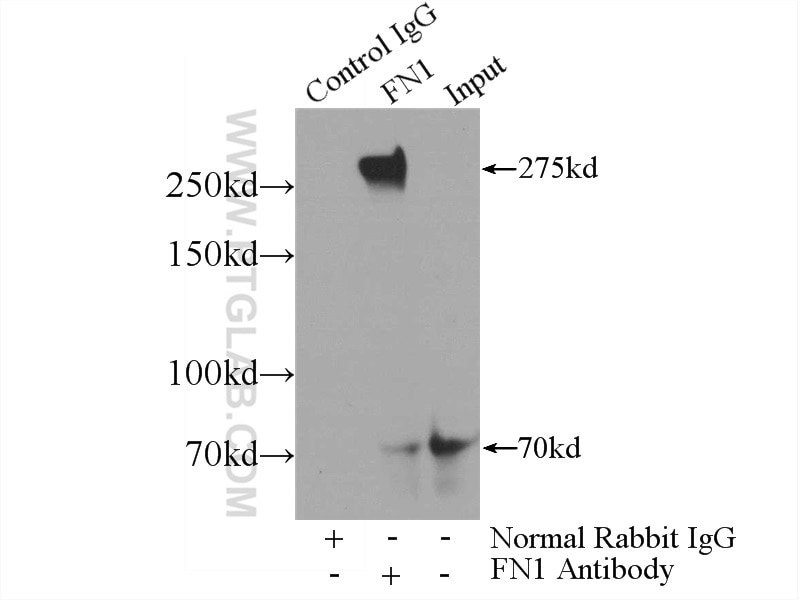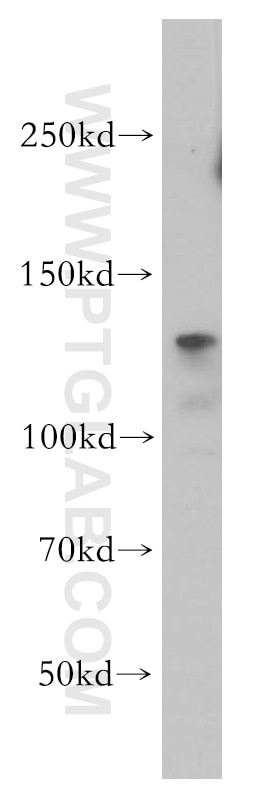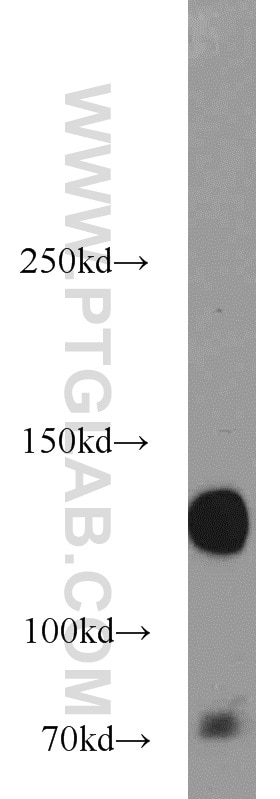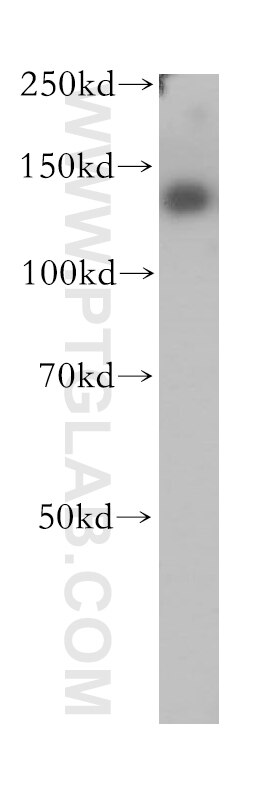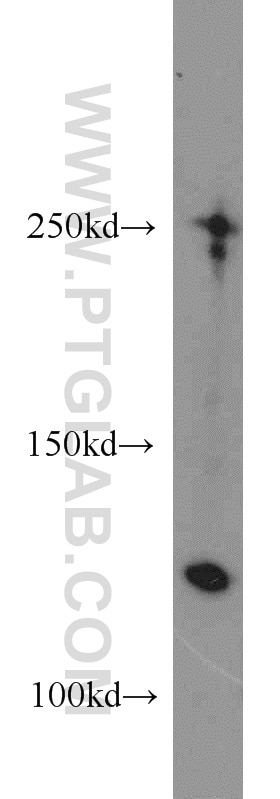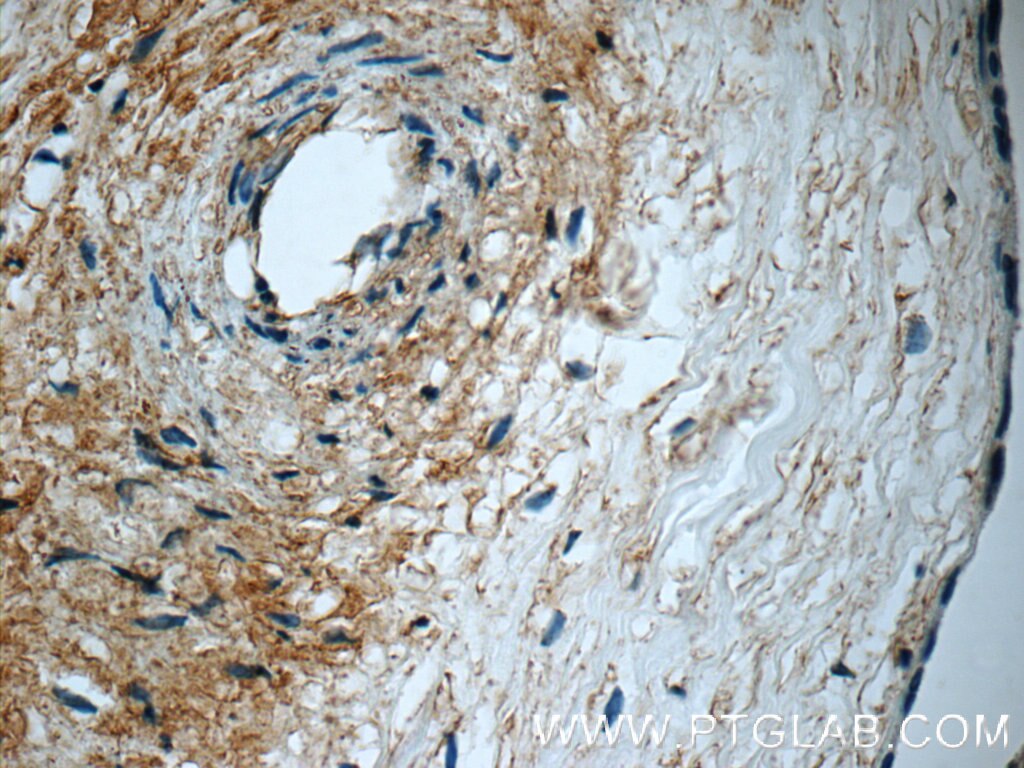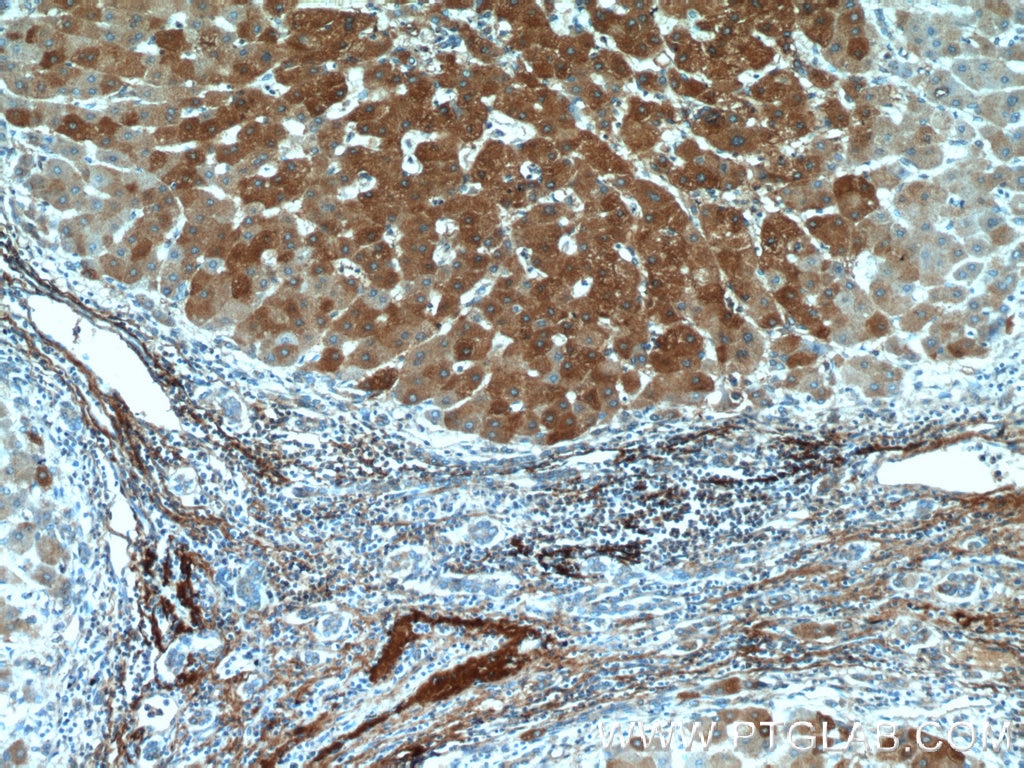- Phare
- Validé par KD/KO
Anticorps Monoclonal anti-Fibronectin
Fibronectin Monoclonal Antibody for IF, IHC, IP, WB, ELISA
Hôte / Isotype
Mouse / IgG1
Réactivité testée
Humain, rat, souris
Applications
WB, IP, IHC, IF, FC, CoIP, ELISA
Conjugaison
Non conjugué
CloneNo.
1G10F9
N° de cat : 66042-1-Ig
Synonymes
Galerie de données de validation
Applications testées
| Résultats positifs en WB | tissu plasmatique humain, cellules HepG2, cellules HuH-7, cellules U2OS, plasma humain, sérum de rat |
| Résultats positifs en IP | tissu plasmatique humain |
| Résultats positifs en IHC | tissu de cancer du côlon humain, tissu de cancer du sein humain il est suggéré de démasquer l'antigène avec un tampon de TE buffer pH 9.0; (*) À défaut, 'le démasquage de l'antigène peut être 'effectué avec un tampon citrate pH 6,0. |
| Résultats positifs en IF | cellules NIH/3T3, tissu de cancer du côlon humain |
Dilution recommandée
| Application | Dilution |
|---|---|
| Western Blot (WB) | WB : 1:2000-1:12000 |
| Immunoprécipitation (IP) | IP : 0.5-4.0 ug for 1.0-3.0 mg of total protein lysate |
| Immunohistochimie (IHC) | IHC : 1:300-1:1200 |
| Immunofluorescence (IF) | IF : 1:50-1:500 |
| It is recommended that this reagent should be titrated in each testing system to obtain optimal results. | |
| Sample-dependent, check data in validation data gallery | |
Informations sur le produit
66042-1-Ig cible Fibronectin dans les applications de WB, IP, IHC, IF, FC, CoIP, ELISA et montre une réactivité avec des échantillons Humain, rat, souris
| Réactivité | Humain, rat, souris |
| Réactivité citée | rat, Humain, souris |
| Hôte / Isotype | Mouse / IgG1 |
| Clonalité | Monoclonal |
| Type | Anticorps |
| Immunogène | Fibronectin Protéine recombinante Ag8016 |
| Nom complet | fibronectin 1 |
| Masse moléculaire calculée | 2386 aa, 263 kDa |
| Poids moléculaire observé | 263 kDa |
| Numéro d’acquisition GenBank | BC005858 |
| Symbole du gène | FN1 |
| Identification du gène (NCBI) | 2335 |
| Conjugaison | Non conjugué |
| Forme | Liquide |
| Méthode de purification | Purification par protéine A |
| Tampon de stockage | PBS avec azoture de sodium à 0,02 % et glycérol à 50 % pH 7,3 |
| Conditions de stockage | Stocker à -20°C. Stable pendant un an après l'expédition. L'aliquotage n'est pas nécessaire pour le stockage à -20oC Les 20ul contiennent 0,1% de BSA. |
Informations générales
Fibronectin 1 (FN1) is a high molecular weight glycoprotein which exists in both a soluble form in plasma (plasma FN1) and other body fluids and an insoluble form in the extracellular matrix (cellular FN1). Plasma FN1 (dimeric form) is secreted by hepatocytes. Cellular FN (dimeric or cross-linked multimeric forms), made by fibroblasts, epithelial and other cell types, is deposited as fibrils in the extracellular matrix. FN1 binds to cell surfaces through integrins and to various compounds including collagen, fibrin and heparin. It is involved in cell adhesion and migration processes including embryogenesis, wound healing, hemostasis, host defense, and metastasis. (PMID: 7276612; 12244123; 12847088)
Protocole
| Product Specific Protocols | |
|---|---|
| WB protocol for Fibronectin antibody 66042-1-Ig | Download protocol |
| IHC protocol for Fibronectin antibody 66042-1-Ig | Download protocol |
| IF protocol for Fibronectin antibody 66042-1-Ig | Download protocol |
| IP protocol for Fibronectin antibody 66042-1-Ig | Download protocol |
| Standard Protocols | |
|---|---|
| Click here to view our Standard Protocols |
Publications
| Species | Application | Title |
|---|---|---|
Int J Biol Macromol A multifunctional polydopamine/genipin/alendronate nanoparticle licences fibrin hydrogels osteoinductive and immunomodulatory potencies for repairing bone defects | ||
Biomed Pharmacother Nintedanib prevents TGF-β2-induced epithelial-mesenchymal transition in retinal pigment epithelial cells | ||
Oxid Med Cell Longev HBO1 as an Important Target for the Treatment of CCL4-Induced Liver Fibrosis and Aged-Related Liver Aging and Fibrosis | ||
Ecotoxicol Environ Saf Alleviative effect of melatonin against the nephrotoxicity induced by cadmium exposure through regulating renal oxidative stress, inflammatory reaction, and fibrosis in a mouse model | ||
Environ Pollut Accumulation of polystyrene microplastics induces liver fibrosis by activating cGAS/STING pathway. | ||
Int J Mol Sci Differential Angiogenic Potential of 3-Dimension Spheroid of HNSCC Cells in Mouse Xenograft. |
Avis
The reviews below have been submitted by verified Proteintech customers who received an incentive forproviding their feedback.
FH Udesh (Verified Customer) (04-19-2023) | Worked well for IP, band seen just below 250 kD (page ruler plus ladder). Lower band is light chain IgG
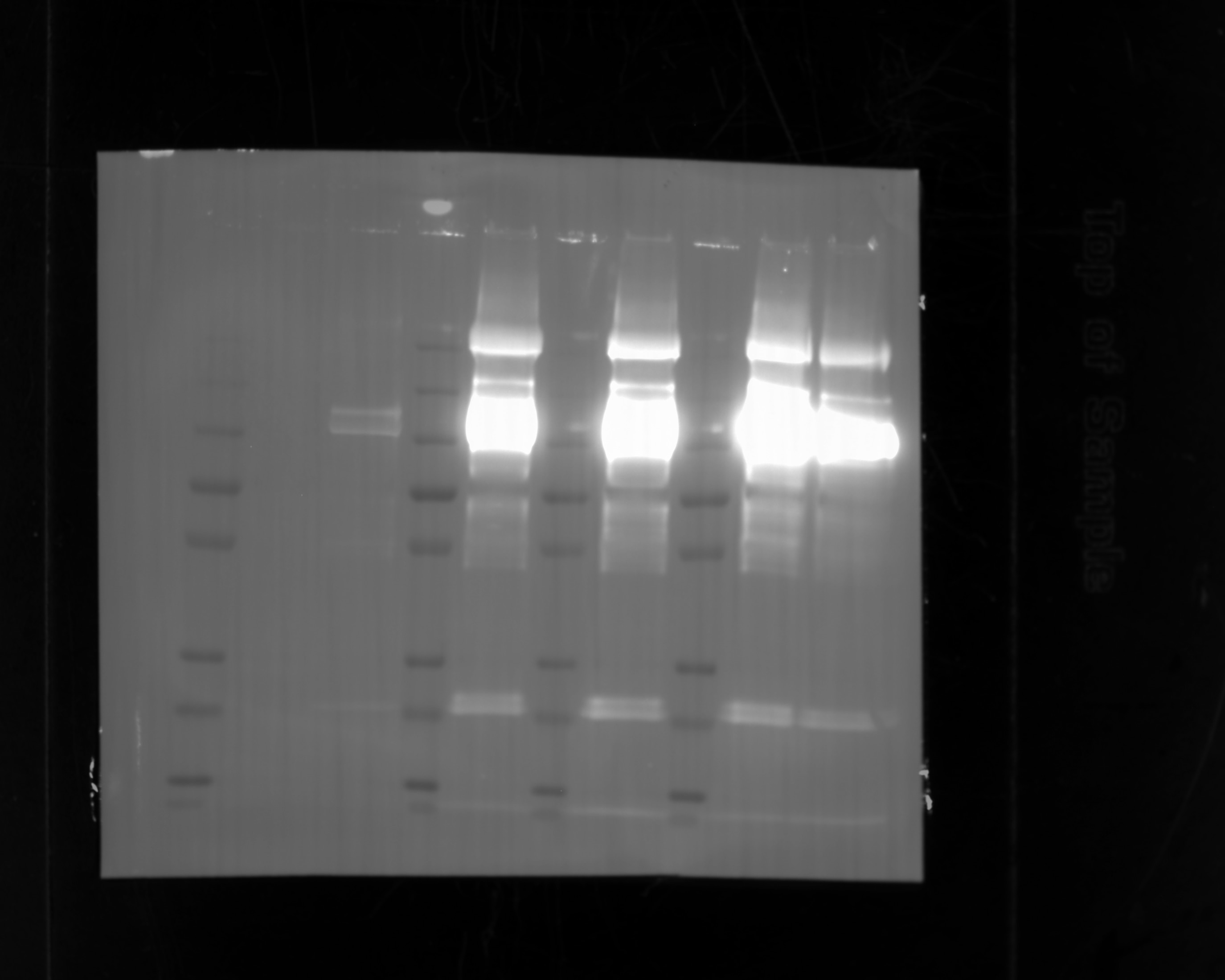 |
FH Ren Jie (Verified Customer) (07-11-2022) | Quite significant smear and non-specific binding
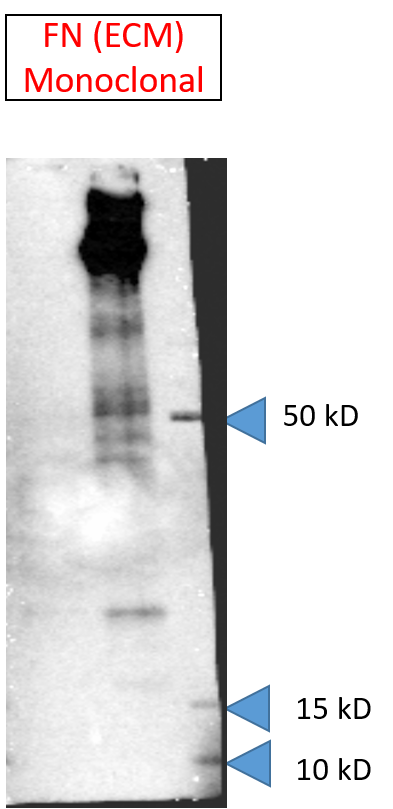 |
FH Deqiang (Verified Customer) (05-14-2020) | it works well on mouse embryo paraffin sections.
|
FH Jihyun (Verified Customer) (05-07-2020) | There is no background signal. I can get a good one band in the WB. Great!
|
